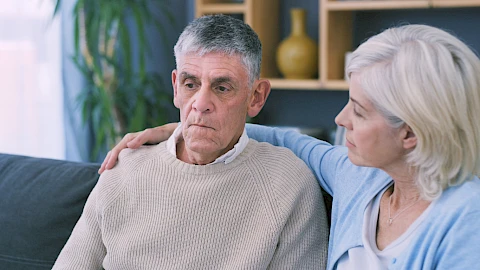
Alzheimer's Disease affects many older adults and their families. Awareness of this disease is important, especially during World Alzheimer's Month. This article is intended for seniors and their caretakers. We will discuss Alzheimer's Disease, who it affects, future trends, and how to find support.
What Is Alzheimer's Disease?
Alzheimer's Disease is a type of dementia that affects the brain. It leads to problems with memory, thinking, and behavior. The disease progresses through different stages, starting with mild memory loss and eventually leading to severe impairments. This is different from normal aging, which might include occasional forgetfulness but not the decline in daily functioning seen in Alzheimer's.
Looking out for these symptoms can help in recognizing the disease early:
- Memory loss
- Confusion
- Difficulty completing familiar tasks
- Changes in mood or behavior
- Withdrawal from social activities
Who Is Most Affected?
Alzheimer's affects primarily older adults. About 5.8 million people in the United States are living with Alzheimer's, and the majority are over the age of 65. Women are more likely than men to develop the disease.
Risk factors include:
- Age: Risk increases significantly with age.
- Genetics: Family history can play a role.
- Lifestyle: Factors like heart health, exercise, and diet can impact risk.
Families and caregivers also feel the impact. Caring for a person with Alzheimer's can be both physically and emotionally draining. There are support resources available to help manage these challenges.
The Future of Alzheimer's
The number of people with Alzheimer's is expected to grow. By 2050, it's estimated that nearly 13 million Americans could be living with the disease. This increase will have broad economic and social implications, from the cost of medical care to the emotional toll on families.
On the positive side, research is advancing. New treatments are being explored, and better ways to diagnose and manage symptoms are being developed. Staying informed about these advancements can provide hope.
Resources for Support and Information
Support is available both locally and nationally. Many communities offer support groups for families affected by Alzheimer's. These groups provide a space to share experiences and coping strategies. Organizations like the Alzheimer's Association and the National Institute on Aging offer extensive information. Additionally, websites like the Alzheimer's Association and NIH have free resources, including articles, fact sheets, and videos. These resources can provide valuable information and emotional support.
When to Seek Medical Attention
Recognizing early signs of memory concerns can make a big difference. If you notice frequent forgetfulness, confusion, or changes in behavior, it may be time to talk to a doctor. Early diagnosis allows for better disease management and planning for the future.
If you are concerned about a loved one, talk to them about your concerns. Encourage them to see a doctor and offer to go with them to their appointment for support. These steps can help initiate the process of getting proper care and support services.
Are You Concerned About Alzheimer's?
Understanding Alzheimer's Disease is crucial for managing its impact. Early recognition and seeking help are key. Don't hesitate to seek support if you or a loved one are dealing with memory concerns. Senior Helpers Provo is here to assist you in Provo, Sandy, American Fork, Draper, and Pleasant Grove. Stay informed, and remember that help is available. Contact us today.